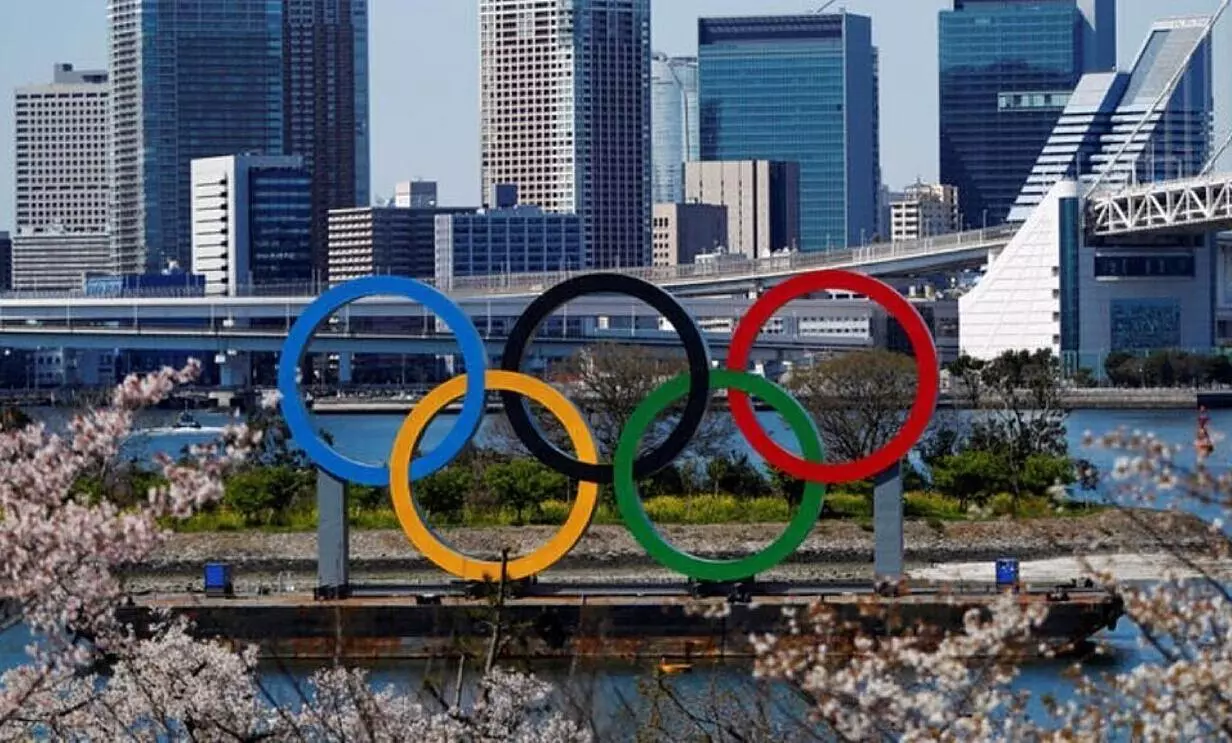

Road ahead to Paris 2024
text_fieldsThe 32nd edition of Olympic Games was historical for India. This year, the Indian contingent of 127 players collected the maximum ever medal tally in the country's Olympic history: one gold, two silver and four bronze medals. However, even winning medals in Olympic Games has become quite a riven subject in our ideologically embattled nation. The caste-isation and politicization of the wins and losses of India's hockey teams showed that the decorum at the Olympic venue was not followed up back home. Indian sports was closely watched on TV by a very divided India.
Even though it was for the first time that the Indian women's hockey team had made it to the Olympics semi-finals, a highly reprehensible incident took place back in India, leaving a bad aftertaste. Following the Indian women's hockey team's August 4 defeat to Argentina (1-2), two upper caste men came to the street in front of star player Vandana Katariya's house at Roshanabad village, Haridwar, "burst crackers, danced in mock celebration" (Times of India), used casteist slurs against her and shouted that India had lost the game due to the presence of "too many Dalit players" in the team.
Where did the nationalistic spirit of India's casteists vanish? Were they indeed celebrating India's loss when they should have gracefully accepted the wins and losses at such a prestigious international sports event?
For these female hockey players, their journey must have been scripted in blood. The young women's spirited striving - above toxic and debilitating conditions of caste, gender and poverty - has surely borne the most pain in pushing India from the 12th place won at the Rio 2016 to a glorious fourth at Tokyo. For the optics, the Haridwar police apprehended the caste offenders this time due to Vandana Katariya's Olympic stardom. The fact remains that we live with a high rate of atrocities committed daily with impunity against Dalits and Muslims in contemporary India.
The politicization of the games went further afield the next day when Prime Minister Modi heartily congratulated the bronze victory of the Men's Hockey Team for winning an Olympic bronze and tied the country's pure glory of August 5, 2021, with two dark chapters in Indian democracy: namely the abrogation of Article 370 (on August 5, 2019) and the laying of the foundation stone for the construction of the Ram mandir at Ayodhya (on August 5, 2020). Dragging the politically neutral Olympic bronze into murky Hindutva politics suddenly shrank the expansive mood of a vast majority of our hockey fans.
Some of the awards of this year's seven Olympics medals have inadvertently exposed the degree of poverty, casteism, racism existing in the country today. Mirabai Chanu from Manipur had won Olympic silver in the women's 49-kg weightlifting this year, while Lovlina Borgohain from Assam won a bronze in the welterweight 69 kg boxing event. Manipur's Magnificent Mary Kom had earlier won a bronze for India in boxing in the 2012 London Olympics and is now a six-time world champion.
However, fitness enthusiast Ankita Konwar, who hails from Assam, used the occasion of Tokyo medals to point to an ugly reality. She called out the racist attacks on people from India's North-Eastern states, saying North-Easterners became human only when they won medals for the country. Otherwise, she said, they were not even considered Indian.
Meanwhile, the German coach of India's golden boy Neeraj Chopra, Uwe Hohn, pointed to inadequacies in diet supplements and training preparations provided for the sportspersons. He spoke to The Indian Express one and a half months back that the Sports Authority of India and Athletics Federation of India (AFI) needed to up the ante concerning the quality of training and diet provided to India's international players.
Olympic bronze winner in freestyle wrestling at Tokyo, Bajrang Punia, used his celebrity status to declare his position siding with the ongoing farmer's agitation in India. Punia was reminding everybody that the best sporting talent in the country still arose from good old, ruddy farmers' stock, and the country's future lay safe in the hands of farmers, not corporates.
Identifying superior talents from across the country in a spirit of democratic inclusion, respecting their talent irrespective of caste or creed, and training them in a well-planned manner by improving the government and institutional support provided to them are measures that will go a long way to ensure a much superior win for the country at Paris 2024. Through sports, India can heal the wounds in its polity and unite the country in spirit.
(Leena Mariam Koshy is an independent writer based in Kozhikode, Kerala)






















